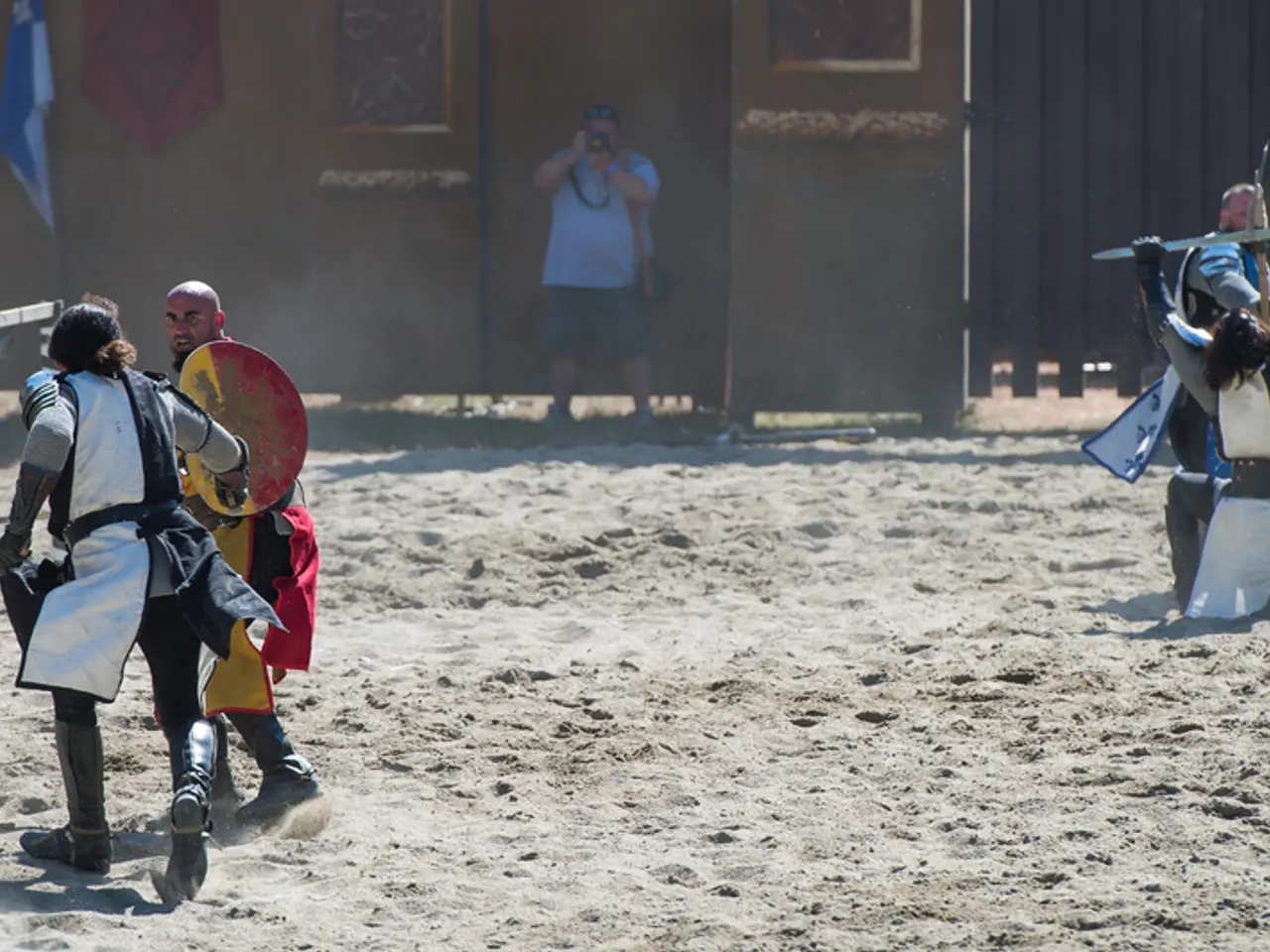Global Cyber Struggle Intensifies: Israel-Iran Cyber Squabble Expands Internationally
The digital battlefield between Israel and Iran is intensifying, posing a significant challenge to geopolitical relationships and sounding a call to action for the global community to strengthen cyber defenses and protect critical infrastructures.
Cybersecurity experts recommend a multi-layered defense approach, incorporating real-time threat detection systems, enhanced public-private partnerships, and continuous updating of cybersecurity protocols. This strategy is crucial as the cyber conflict between these nations impacts global digital infrastructures.
A high-profile incident involved the disruption of Tehran's transit network, demonstrating the potency and reach of these cyberattacks. In response, international cooperation has become essential to fortify collective cyber defenses in the face of growing threats.
The current strategies for international collaboration and robust defense mechanisms involve a combination of coordinated intelligence sharing, multi-layered cyber defense posture, integrated kinetic and cyber operations, and targeting key financial and military infrastructure to disrupt enemy capabilities while controlling information domains.
Israel leverages intelligence collection extensively as a force multiplier. Joint intelligence efforts support pre-emptive cyber strikes and real-time defense. The conflict has seen integrated operations, combining cyberattacks disabling Iranian radar, communications, and infrastructure alongside drone and missile strikes, supported by U.S. missile defense systems. This integration demonstrates an advanced combined-arms approach where cyber capabilities shape the battlefield in tandem with kinetic actions.
Both nations wage cyber warfare targeting financial institutions and command infrastructure. Israel's hacking of Iranian crypto exchanges and Iranian cyberattacks on Israeli critical infrastructure (power grids and networks) illustrate the strategic targeting of state and military resources to degrade the opponent's operational capacity.
Israel's deployment of Iron Dome, David's Sling, Arrow missile defenses plus allied systems exhibited a high interception rate, complemented by hardened cyber defenses meant to protect private sector networks and essential civilian infrastructure. However, Israel's experience highlighted the limits of cyber deterrence when private networks are insufficiently secured.
Both parties undertake aggressive control over information flows, aiming to manage internal morale and public perception during active cyber and physical warfare. Iran's near-total internet blackout to prevent Israeli cyber incursions and Israel blocking foreign media impacts are examples of this strategy.
Iran operates through an array of hacktivist groups and proxies combined with ideological and military-linked cyber brigades, coordinated through platforms like Telegram, enabling layered, persistent cyber campaigns. This structure complicates attribution and response strategies.
Regarding best practices for international collaboration, these include sharing timely cyber threat intelligence among allies, coordinating cyber defense frameworks that include private and public sectors, combining cyber defenses with physical defense systems, diplomatic engagement to establish clearer norms, and supporting capacity building in allied nations to counter or deter proxy cyber operations linked to Iran.
Cyberattacks on critical infrastructure, such as transportation systems and water treatment facilities, are becoming prime targets. Non-state actors and hacker groups affiliated with both nations are focusing on undermining critical infrastructures, including power plants, healthcare systems, financial institutions, and transportation networks. A large-scale cyberattack on a European nation's power grid, allegedly linked to the Israel-Iran conflict, caused prolonged blackouts, affecting millions and costing billions in damages.
Countries uninvolved in the direct conflict are finding themselves collateral damage in this cyber warfare, prompting concerns over global cybersecurity. The growing involvement of hacker groups is introducing an element of unpredictability and raising concerns among the international community.
According to cybersecurity analyst Dr. Sabine Fischer, no nation is immune to the evolving cyber conflict between Israel and Iran, and it's imperative that countries work together to develop comprehensive strategies to prevent and respond to these digital threats. The Israel-Iran cyber conflict underscores the need for robust international cyber policies and collaborative defense strategies. Nations must come together to address these challenges head-on, ensuring a coordinated and effective response to cyberattacks that have the potential to destabilize our digital world.
Cybersecurity analysts are advocating for the integration of an encyclopedia of known threats within various cybersecurity technologies, as the cyber conflict between Israel and Iran continues to expand and evolve. This comprehensive database would help in the quick identification and defense against the escalating number of threats worldwide.
The escalating cyber battles between nations call for the regular updating of cybersecurity protocols, as the ongoing Israel-Iran conflict serves as a stark reminder of the increasingly significant role of cybersecurity in modern technology and global security.




